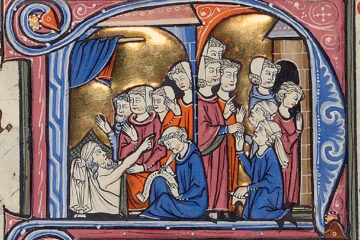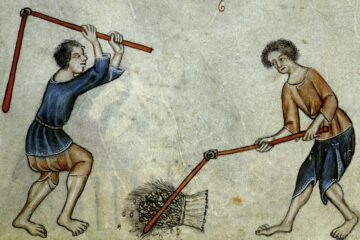by Argonon var Emril, Lord Marshal of the Imperial Army
It has been brought to my attention; the many flaws of the Imperial Army. Not to say that the Emperor, his council, or the late Lord Marshal were wrong, just that, in the extent of their own vision, they were obstructed by the time they lived and still live in.
First, there is an issue with the Foundations, which serve as the building blocks of the Imperial Army. Who makes up an Imperial Foundation? Every settlement above 100 men and women should be expected to contribute one Foundation. As the population increases, so too does the required number of Foundations. Every settlement that provides a Foundation should have an Imperial Barrack or a section for the Foundation within the regular ones. The military oath is to be taken for life, but should be revocable up until the soldier becomes an officer. Once someone leaves the military, they can never return. Those who leave, without breaking their oath in front of their commander, will be labeled as deserters. Men and women from the ages of 16 to 40 can enlist for the army when they take the oath:
“I pledge my life and my sword to the Empire and to the Emperor. To protect its lands and its people under the guidance of my commander. I shall never kill another brother or sister in arms, I shall never steal from the Empire and I shall never disobey my commanders. From this day, until I no longer can, I pledge my blood and breath to the Imperial Army and the Sirius Empire. Victory or Death!“
Lord Marshal James Sullivan
Foundations are to have 10 men each. No more, no less. Each foundation is to have 1 Sergeant and one Officer to lead them with a Lt. to serve as their commander. Captains are the commanders of Lieutenants, and each one must have 5 under them at all times. Generals command 3 Captains, Marshals 3 Generals, Grand Marshals 3 Marshals and the Lord Marshal is the de facto commander of the three Grand Marshals and the entire Imperial Army unless the Emperor assumes direct control. Each member of a unit must answer directly to their commander. A recruit cannot take orders from the Lord Marshal directly, the Chain of Command must be followed.
The Imperial Army is not to intertwine with the Noble or Clergy estates. It operates independently from them. However, a level of cooperation must be maintained. Everyone bellow Sergeant answers to their Officer, who answers to their Lt. Lieutenants correspond to their local Barons, Captains to Mayors, Generals to Counts, Marshals to Dukes, Grand Marshals to Monarchs and the Lord Marshal to the Emperor. Therefore a General has free reign to cooperate with a Count, but not anyone lower or higher than him. Also, note that the Army will not be specifically tied to these regions of the Empire, specific recruitment zones will be established and implemented to make organization easier.
Still, military commanders do not have the right to use their men whenever they want, even when their help is requested by the Noble or Clergy estate. Instead, the Imperial Army can only be used to:
- Defend the territorial integrity of the Empire from foreign invaders
- Defend the Emperor
- Destroy bandit brotherhoods
- Uphold Imperial Decrees
Therefore, the Imperial Army, in order to preserve it as much as possible, cannot be used:
- In wars between loyal members of the Empire
- In personal vendettas
If the proper requirements are not met and the papers are not in order, then a commander will be charged for the misuse of the Imperial Army and will be tried for Treason by the High Trial. The penalty is execution by way of beheading. Desertion and insubordination are punishable by death. Failure is punishable by death, banishment, or imprisonment. If a person reaches an age where they can no longer serve the military faithfully, and their previous service has been honorable and admirable, they will be granted the status of Imperial Veteran and granted land and a pension for their service. They must be at least a Lt. for this to be applicable. If a woman would get pregnant while under oath, she will be banished from the Army. If a soldier becomes an invalid or becomes mad they will be banished as well.
Every soldier must be well-versed in sword and pike warfare. They will be clad in chainmail and will bear the colors and sigil of the Empire. Special foundations will be created for archers and engineers. Horses are given only to the commanding ranks.
Those nobles who would not contribute the required number of soldiers and Foundations will be tried for Treason by way of the High Trial.
In addition to providing a specific number of soldiers for the Imperial Army from their population, Lords must also fill the ranks of the Watch from their own levy. Each holding with a church and a fort must have an Imperial Watch with an Overseer, appointed by the regional commander. The Watch is there to keep the peace and to defend the holding from any and all threats. The Watch members obey the orders of the Overseer who corresponds with the owner of the Holding, of whichever rank they may be. The only people who can overrule the holding’s owner and effectively take control of the Watch of any holding are the Lord Marshal and Emperor. Therefore the Town Watch of Forechester listens to the Overseer, who listens to the Mayor of Forechester. If the King orders them to open the gates, he must first have the written approval of the Mayor. The Lord Marshal can assume command of the Overseer, however.


